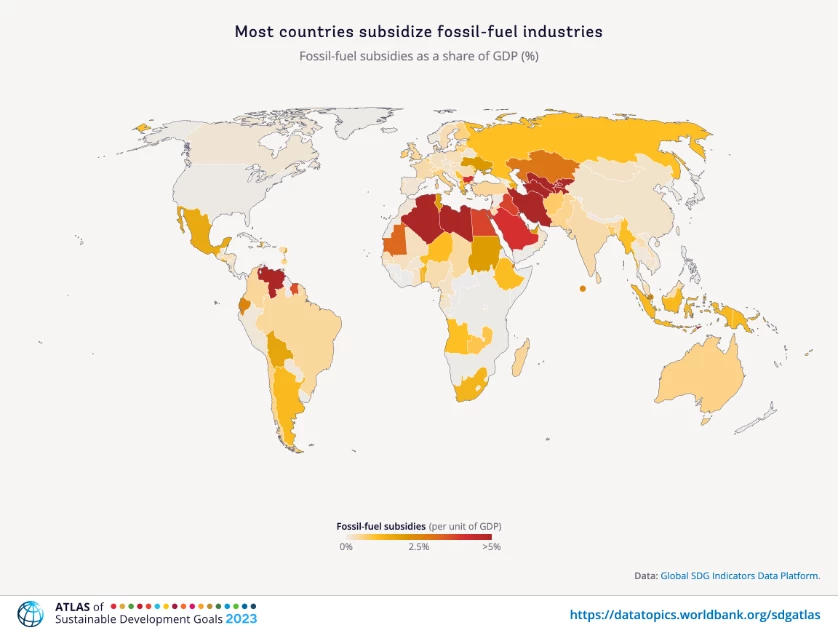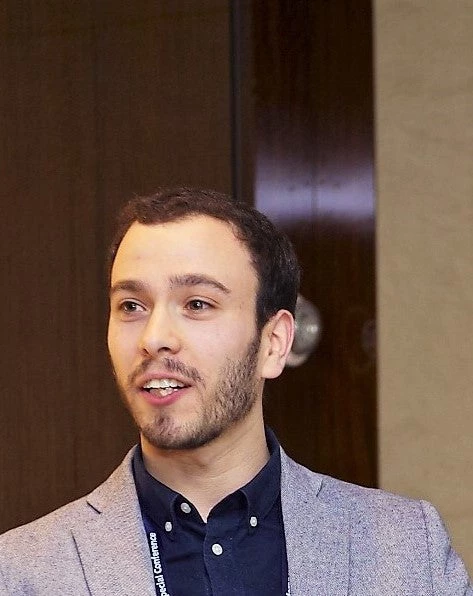SDG 12 calls for the sustainable production and consumption of goods and services.
A country can be considered to be on a sustainable path if it can maintain its standard of living without depleting its natural resources or otherwise degrading the environment, for example, by polluting or not managing waste well. In that spirit, SDG target 12.2 aims to achieve sustainable management and efficient use of natural resources by 2030.
Countries have demonstrated it is possible to achieve economic growth without depleting natural resources: on average, countries have increased the value of their natural capital by 26.8 percent since the mid-1990s. Yet, for many countries, economic growth continues to come at the expense of natural resources.
In the SDG framework, the responsibility to ensure sustainable production and consumption patterns is shared by governments, the private sector, and citizens.
An important action for governments in this effort is to limit fossil fuel subsidies (as captured in SDG indicator 12.c.1). This is because fossil fuel subsidies create incentives to prioritize unsustainable production and discourage use of renewable resources. This is a short-run strategy that contributes to greenhouse gas emissions and climate change, counteracting SDG 7 and SDG 13.
Most countries use fossil fuel subsidies to some extent, and 51 countries subsidize fossil fuels by more than one percent of national income. Ten countries spend more than five percent of their national income, with Iran and Lebanon at the top devoting 19 and 13 percent, respectively.
Explore this interactive map of the 2023 Atlas of Sustainable Development Goals to see how other countries subsidize fossil-fuel industries.
How many countries have grown unsustainably? And how can the private sector and citizens play their part in ensuring that resources are sustainably managed and efficiently used? Look at the data stories and visualizations of the twelfth chapter of the Atlas to learn more.




Join the Conversation